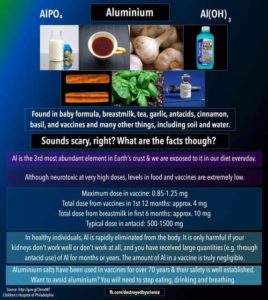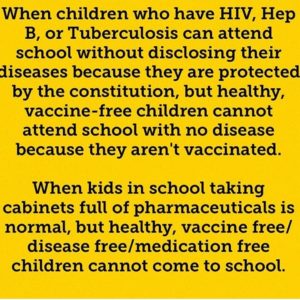
Children Playing

“In many shamanic societies, if you came to a medicine person complaining of being disheartened, dispirited, or depressed, they would ask one of four questions:
“When did you stop dancing?
When did you stop singing?
When did you stop being enchanted by stories?
When did you stop being comforted by the sweet territory of silence?”
Gabrielle Roth
Learn Your History

It is vitally important that we change the system and elect representatives of hte people to parliament rather than those beholden first to their party and second to their political donors.
You Are Responsible For Fixing It

If you have unwanted thoughts, emotions, fears or pains that have no direct physical source and you would like to resolve them, drop me a line.
Robert Kennedy Jr: CDC is a privately owned vaccine company

The naivety of taking health advice from an organisation that makes money when you vaccinate, loses nothing if you are injured by them, completely ignored its responsibility to test them for safety and was exposed by whistleblowers to be corrupt and unethical just beggars belief!
Robert F. Kennedy Jr. claims the CDC owns patents on at least 56 different vaccines, and profits $4.1 billion per year in vaccination sales.
According to RFK Jr., the CDC is not an independent government agency but is actually a subsidiary of Big Pharma.
Greenmedinfo.com reports: Mr. Kennedy told EcoWatch, “The CDC is a subsidiary of the pharmaceutical industry. The agency owns more than 20 vaccine patents and purchases and sells $4.1 billion in vaccines annually.” Again, no source.
I have been around long enough to know that vaccine claims have to be checked and rechecked. And since this is a very old claim, one that I would like to be able to state (if it is true), I decided to review it.
I am fortunate to have, as one of my partners in advocacy, fellow autism parent Mark Blaxill, an Intellectual Property expert who has been employed by billion dollar corporations to manage their patents. Blaxill was the man who found out that HHS, through NIH, owns patents on all HPV vaccines, and receives a percentage of the profits for each dose of Gardasil and Cervarix administered anywhere in the world. He published the stunning revelation in a detailed three part expose entitled, “A License to Kill? Part 1: How A Public-Private Partnership Made the Government Merck’s Gardasil Partner.”
When I contacted Blaxill to ask how to run a patent search, he was kind enough to do it for me. He found 57 granted US patents with the CDC listed as an assignee.
https://explainlife.com/robert-kennedy-jr-cdc-is-a-privately-owned-vaccine-company-3668/
Too Hot For Ashphalt

The Great Artesian Basin

If the Great Artesian basin were visible to us all, the Adani “debate” would not be a debate at all. Let alone fracking QLD, the Northern Territory or the NSW Pilliga region.
The Great Artesian Basin is an ocean of water underneath 22% of Australia – if you buy Australian grown food products we can guarantee much of that contains water. Once that water is poisoned by the CSG industry, well, in the words of Michael Caton, “You Can’t Unscramble The Egg”.
CDC Spider

Largest medical whistleblower event in histroy. The CDC SPIDER bites! CDC Whistleblowers Team Up and Demand “House Cleaning” and Lend Credence to Increasingly Critical Views of Authority Structures
https://globalfreedommovement.org/the-biggest-medical-whistleblower-event-in-history-just-happened/
Alumnium – Ingestion Versus Injection

== Aluminum Deception by the Children’s Hospital of Philadelphia (CHOP) ==
Please read the text on the graphic before continuing.
Back? Good. Let me explain how the Children’s Hospital of Philadelphia is purposefully lying to people.
The main point they are making is that we ingest (eat, breath, drink) more aluminum than is in vaccines thus we shouldn’t worry about the amount in vaccines. They point out how abundant aluminum is in the Earth’s crust to further their point.
Sounds reasonable, but it’s not. Here’s why.
When aluminum ingestion studies are conducted the researchers multiply the aluminum by 0.3% because that’s how much gets through the gut into the bloodstream. The gut lining is designed to prevent foreign substances like aluminum to pass through. Instead, the substances are often excreted harmlessly in urine and feces. (Ingested aluminum does get excreted but it’s not done harmlessly. The aluminum cation damages the gut lining by opening the tight junctions, thereby causing intestinal permeability.)
However, vaccines are injected precisely so that this protective barrier (the gut lining) is bypassed.
The ATSDR sheet below cites 0.01% to 5% (see link) but a common value used in aluminum ingestion studies is 0.3%. That’s not 3%—it’s zero point 3 percent. The gut lining, unfortunately, has to deal with all of the aluminum—but that’s another topic.
When someone tells you that we ingest more aluminum than we get from vaccines, they never multiply by 0.003 thus their argument is entirely false. Most pro-vax people have not studied aluminum so in a way this error is somewhat forgivable when they repeat it. Correct them nicely and move on.
But it is not forgivable by CHOP. This is academic deception on their part because this is the very basics of aluminum science. There is no excuse for them to omit this reduction factor.
Furthermore, they are comparing an aluminum salt, which is a compound, with the Al cation that we ingest. Another part of the deception.
This is just the latest in a string of lies by CHOP. The prior one (now taken down from their site but screenshots are widely available) was this howler:
“[Aluminum] is found in all tissues and is also believed to play an important role in the development of a healthy fetus.”
No, aluminum is a toxicant and only a toxicant. There is no known beneficial biochemical reaction that uses aluminum as part of its function. (There is one known Al-specific plant reaction that appears to protect the plant from aluminum but that’s it.)
ToxGuide(tm) for Aluminum, Agency for Toxic Substances and Disease Registry
https://www.atsdr.cdc.gov/toxguides/toxguide-22.pdf
For more detail on how CHOP lies, please see:
http://vaccinepapers.org/dr-paul-offits-aluminum-deceptions-academic-misconduct/
Jack does an excellent job for even more detail:
Reconsideration of the immunotherapeutic pediatric safe dose levels of aluminum, 2018
https://www.sciencedirect.com/science/article/pii/S0946672X17300950
School Vaccine Rules

Sanity begone! We don’t need your logic here!
